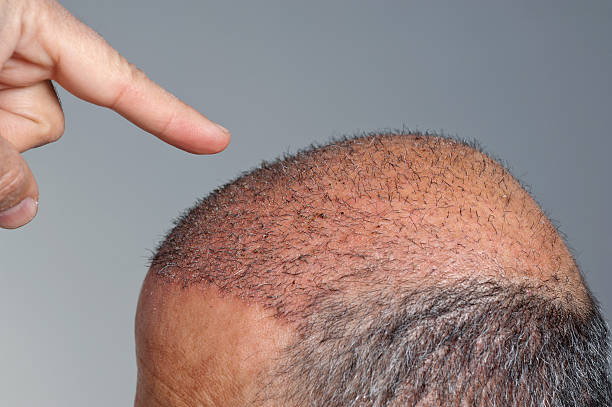Fermentation: The Next Frontier in Skincare
In the ever-evolving world of beauty, a surprising new trend is bubbling up from an unexpected source: fermentation. This ancient process, long associated with culinary delights like kimchi and kombucha, is now making waves in the skincare industry. Fermented ingredients are being hailed as the next big thing in beauty, promising to revolutionize our skincare routines with their potent, bioavailable formulations. But what exactly is fermented skincare, and why is it gaining such traction? Let's dive into the fascinating world of beauty fermentation, exploring its rich history, current applications, and potential future impact on the industry.

During fermentation, microorganisms like bacteria, yeast, or fungi are introduced to skincare ingredients. These microorganisms consume sugars and starches, producing lactic acid, acetic acid, and other substances that can benefit the skin. This process not only enhances the bioavailability of active ingredients but also creates new compounds that weren’t present in the original material.
Moreover, fermentation can break down molecules that might otherwise be too large for the skin to absorb effectively. This results in smaller, more penetrative particles that can deliver benefits deeper into the skin layers.
Historical Roots and Cultural Significance
While fermented skincare may seem like a modern innovation, its roots trace back centuries in various cultures. In Korea, for instance, fermented ingredients have long been a staple in traditional beauty rituals. The use of fermented soybeans, rice water, and other plant-based ingredients in skincare can be traced back to ancient times.
In Japan, the tradition of sake brewing has influenced skincare practices. Sake brewers were known for their soft, youthful hands, leading to the discovery of kojic acid, a byproduct of rice fermentation now widely used in skincare for its brightening properties.
Even in Western traditions, fermented ingredients have played a role in beauty practices. Vinegar, a fermented product, has been used as a skin toner and hair rinse for centuries.
These historical practices laid the groundwork for the current fermented skincare trend, blending ancient wisdom with modern scientific understanding.
Current Trends and Market Impact
The fermented skincare market has experienced significant growth in recent years. According to a report by Grand View Research, the global fermented ingredients market size is expected to reach $40.5 billion by 2027, with skincare being a significant contributor to this growth.
Many brands, particularly those inspired by Asian beauty traditions, have launched products featuring fermented ingredients. These range from essences and serums to creams and masks, all touting the benefits of fermentation.
Popular fermented ingredients in skincare include:
-
Fermented tea extracts (e.g., kombucha)
-
Fermented rice water
-
Fermented soy
-
Fermented honey
-
Fermented fruit extracts
These ingredients are often marketed for their anti-aging, brightening, and hydrating properties. The appeal of fermented skincare lies not only in its perceived efficacy but also in its alignment with the growing consumer interest in natural, sustainable beauty solutions.
Benefits and Potential Drawbacks
Proponents of fermented skincare claim numerous benefits, including:
-
Enhanced absorption: As mentioned earlier, fermentation can break down molecules into smaller, more easily absorbed components.
-
Increased potency: The fermentation process can concentrate active ingredients, potentially making them more effective.
-
Natural preservation: Fermentation produces natural preservatives, potentially reducing the need for synthetic additives.
-
Probiotic benefits: Some fermented ingredients may support the skin’s microbiome, promoting overall skin health.
-
pH balancing: Many fermented ingredients have a slightly acidic pH, which can help maintain the skin’s natural protective barrier.
However, it’s important to note that while these benefits are promising, more extensive research is needed to fully substantiate some of these claims. Additionally, as with any skincare ingredient, fermented products may not be suitable for everyone. Some individuals may experience sensitivity or allergic reactions, particularly to products containing active cultures.
Future Prospects and Innovations
As the fermented skincare trend continues to grow, we can expect to see further innovations in this space. Some potential developments include:
-
Personalized fermented skincare: Tailoring fermented formulations to individual skin types and concerns.
-
Advanced fermentation techniques: Exploring new methods to enhance the benefits of fermentation for skincare.
-
Combination with other technologies: Integrating fermented ingredients with other cutting-edge skincare technologies for synergistic effects.
-
Sustainability focus: Developing more eco-friendly fermentation processes and packaging solutions.
-
Expanded ingredient repertoire: Discovering new plant-based ingredients that can benefit from fermentation for skincare use.
Challenges and Considerations
While the future of fermented skincare looks promising, there are challenges to consider. Quality control and standardization can be complex, as the fermentation process can be affected by various factors. Ensuring consistent results across batches may require sophisticated manufacturing processes.
There’s also the challenge of educating consumers about the benefits and proper use of fermented skincare products. As with any new trend, there’s a risk of misinformation and exaggerated claims, which the industry will need to address through transparent communication and evidence-based marketing.
Regulatory considerations will also play a role in the growth of this sector. As fermented skincare products often straddle the line between cosmetics and cosmeceuticals, clear guidelines may be needed to ensure consumer safety and product efficacy.
In conclusion, fermented skincare represents an exciting frontier in the beauty industry, blending ancient wisdom with modern science. As research continues and innovations emerge, we may well see fermentation become a mainstay in skincare routines worldwide. However, as with any skincare trend, it’s crucial for consumers to approach fermented products with a discerning eye, consulting with skincare professionals and patch-testing new products to ensure they’re suitable for individual skin needs. The fermentation revolution in skincare is just beginning, and it will be fascinating to see how this age-old process shapes the future of beauty.





